Russia
has ‘more proof’ ISIS oil routed through Turkey, Erdogan says
he’ll resign if it’s true
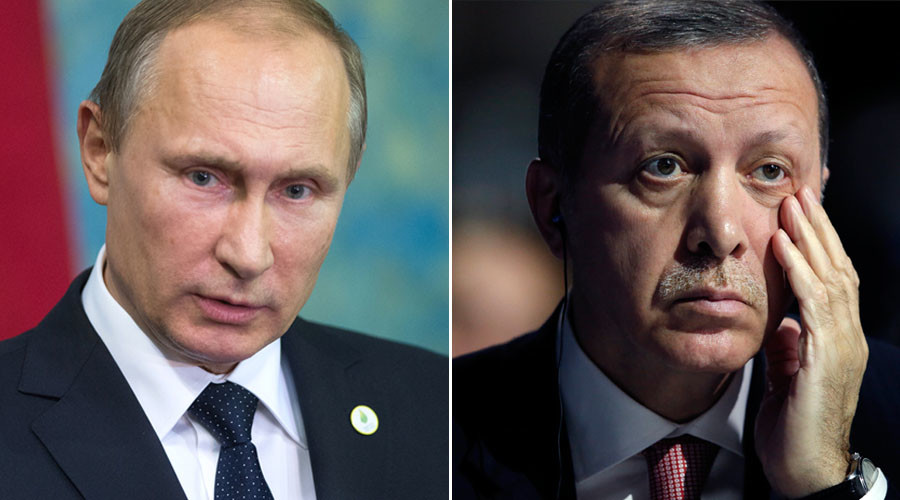
RT,
30
November, 2015
Russia
has received additional intelligence confirming that oil from
deposits controlled by Islamic State is moved through Turkey on an
industrial scale, said Vladimir Putin. President Recep Erdogan said
he will resign if this is confirmed.
Moscow
has grounds to suspect that the Su-24 was downed by Turkish jets on
November 24 to secure illegal oil deliveries from Syria to Turkey, he
said speaking on the sidelines of the climate change summit in
Paris on Monday.
“At
the moment we have received additional information confirming that
that oil from the deposits controlled by Islamic State militants
enters Turkish territory on industrial scale,”
he said.
“We
have every reason to believe that the decision to down our plane was
guided by a desire to ensure security of this oil’s delivery routes
to ports where they are shipped in tankers,”
Putin said.
Speaking
in Paris on Monday, President Recep Erdogan said that he will leave
office if there is proof of Turkey’s cooperation with IS.
“We
are not that dishonest as to buy oil from terrorists. If it is proven
that we have, in fact, done so, I will leave office. If there is any
evidence, let them present it, we’ll consider [it],” he
said, as quoted by TASS.
The
countries from which Turkey buys oil are “well
known,”
said Erdogan.
He
called on Russia to comment on the US’ recent black-listing of
Kirsan Ilyumzhinov, the World Chess Federation President, accusing
him of “materially
assisting and acting for or on behalf of the Government of Syria.”
Erdogan alleged Ilyumzhinov had been dealing with Islamic State oil.
#Breaking Turkey's Erdogan says will step down if Russian claims of buying oil from Daesh are proved
Terrorists
have been abusing the visa-free regime between Russia and Turkey to
move freely, the Russian leader said adding that Ankara failed to
address the issue after Russia raised it.
“We
have been asking [Ankara] for a long time to pay attention”
to the threat posed by some terrorists active in separate regions of
Russia, including the northern Caucuses, that have been “emerging
on Turkish territory,”
Putin said.
Moscow
has asked Ankara to “stop
this practice,”
he added, but pointed out that “we
have traced some located on the territory of the Turkish Republic and
living in regions guarded by special security services and police
that have used the visa-free regime to return to our territory, where
we continue to fight them,”
he dded.
‘Oxygen for jihadists’: #ISIS-smuggled oil flows through Turkey to intl markets – Iraqi MP http://on.rt.com/6xx3
Answering
a question as to whether Moscow wants to form a broad based
anti-terrorist coalition, Putin said Russia has always supported this
initiative, “but
this cannot be done while someone continues to use several terrorist
organizations to reach their immediate goals.”
Putin
admitted that he was personally saddened by the deterioration of
relations with Turkey. He explained that “problems
do exist and they emerged a long time ago and we have been trying to
resolve them in dialogue with our Turkish partners.”
Russia deploys cutting-edge S-400 air defense system to Syrian base after Su-24 downing http://on.rt.com/6xos
Putin
said he has heard Ankara’s claims that it was not Erdogan who made
the decision to down the Russian jet. However, he stressed that for
Russia “it
doesn’t really matter”
which official made the decision.
“As
a result of this criminal campaign our two soldiers died – a crew
commander and a marine, who was part of the rescue team of the
[Su-24] crew,”
he said, adding that Turkey’s actions had been “a
huge mistake.”
Russo-Turkish
relations have deteriorated in the wake of the downing of Russia’s
Su-24 by Turkish jets over Syria on November 24. Russia imposed a
package of economic sanctions against Turkey last Thursday, which
included banning several Turkish organizations and the import of
certain goods, as well as cancelling the visa-free regime for Turkish
citizens travelling to Russia starting next year.
VIDEO: Remains of Su-24 pilot killed in Syria arrive in Russia https://youtu.be/cDJufyDQnzw
Speaking
on the sidelines of the summit, Erdogan said that Ankara will act
“patiently,
not emotionally”
before imposing any counter-measures.
Meanwhile,
ahead of the summit, Turkish Prime Minister Ahmet Davutoglu stated
that Ankara will not apologize “for
doing our duty.”
Putin
and Erdogan were hoped to meet at the environmental summit taking
place in Paris, but Putin said that no meeting was held on Monday.
Turkey Arrests Generals Who Stopped Syria-Bound, Weapons-Laden, Spook Trucks
30
November, 2015
If
there’s a silver lining to last Tuesday’s downing of a Russian
Su-24 warplane by two Turkish F-16s it’s that the world is now
starting to scrutinize President Recep Tayyip Erdogan. Even to the
uninitiated it seemed strange that a NATO member would shoot down a
Russian fighter jet over an alleged 17 second violation of Turkish
airspace. Why, one wonders, would the democratically elected leader
of one of the world’s foremost up and coming emerging markets
decide, out of the blue, to become the first member of the alliance
to engage a Russian or Soviet aircraft in more than six decades?
The
answer to that question lies in Ankara’s covert dealings with the
various rebel groups fighting the Assad regime in Syria.
Turkey’s
support for some militias (the Turkmen fighters aligned with the FSA
for instance) is not secret. However,
there’s no shortage of speculation that Erdogan is also allied with
less “moderate” forces including ISIS. The
PKK for instance, has long accused the government of maintaining a
cozy relationship with Islamic State and there are all manner of
reasons to believe that Turkey has at various times facilitated the
flow of fighters and weapons to ISIS (see here)
and served as a critical link between the group’s lucrative oil
operation and global crude markets (see hereand here).
Now, thanks to last week’s plane “incident”, this has been laid
bare for the world to see and Erdogan is not happy about it.
Now
that AKP has regained its political supremacy (thanks to a farce of
an election Erdogan engineered after AKP lost its absolute majority
in June), Ankara has renewed its crackdown on undesirable journalism.
As we reported on Friday, Can Dündar, editor in chief of Cumhuriyet,
and Erdem Gül, the newspaper’s capital correspondent in Ankara,
were arrested last week on charges of spying and aiding and abetting
terrorists.
In
reality, Dündar and Gül exposed Turkish intelligence’s role in
providing weapons to extremists operating across the border.
Here’s WSJ
with the summary:
"The
charges center on a Cumhuriyet report in May, including photos and
video, suggesting Turkish intelligence was secretly ferrying weapons
to extremist Syrian rebels. The
article sparked a major furor in Turkey, which has long been accused
by its critics of secretly aiding in the growth of Islamic State
militants based in neighboring Syria.” Here’s the video:
“The
footage shows gendarmerie and police officers opening crates on the
back of the trucks which contain what newspaper Cumhuriyet described
as weapons and ammunition,” Reuters
reported at
the time, adding that “witnesses
and prosecutors have alleged that MIT helped deliver arms to parts of
Syria under Islamist rebel control during late 2013 and early 2014,
[according to] a prosecutor and court testimony from gendarmerie
officers.”
For
his part, Erdogan claimed the trucks were carrying humanitarian aid
for Turkmen groups (presumably the same FSA-aligned Turkmen groups
who executed a Russian pilot last week). The President then
hilariously accused a bevy of officers and prosecutors of being part
of a “parallel state” (with ties to Fethullah Gülen). determined
to bring down the government.
As
Reuters went on to detail, the trucks were eventually allowed to
pass after
MIT officials threatened the police."Don't
treat me like you have captured a terrorist," one of the men
told a gendarmerie officer who had handcuffed him.
The
contents of the crates: 1,000 mortar shells, hundreds of grenade
launchers and more than 80,000 rounds of ammunition for light and
heavy weapons.
Here's
where the trucks were intercepted:
Given
that the battle for Aleppo (which is still going on today with
Iranian ground forces advancing on the city), was raging at the time
the trucks were stopped, and given what we know about FSA's ongoing
presence in the city, it seems fairly obvious that the weapons were
bound for the Free Syrian Army. Indeed, Erdogan hedged
his "humanitarian aid for Turkmens" story,
telling supporters over the weekend that "those who revealed the
transfer made the world hear about these trucks by stopping them and
checking what they were carrying. Then they said the government was
sending weapons to terrorist groups [in Syria]. In so doing, they
revealed all the humanitarian aid that was going to Bay?r-Bucak
Turkmens. They
also exposed those going to the FSA in that way."
Of
course funneling money to the FSA is dangerous enough as we saw last
week when the 1st coastal brigade destroyed a Russian search and
rescue helicopter with a US-made TOW, but it's not as though the FSA
(they're "moderates" don't forget, despite the fact that
they fight alongside al-Nusra) were alone in Aleppo when these MIT
trucks were stopped. Here's are two maps which show the ISIS presence
in the city on 01/05/2014:
As
you can see, there's no telling who these weapons were intended for
which, presumably, is why the gendarmerie sought to stop the
shipment.
Not
satisfied with having imprisoned the reporters who broke the story,
Erdogan moved on Monday to arrest the officers involved in the stop.
Here's the official story from state-run Anadolu
Agency:
A court in Istanbul has ordered the arrest of three senior army officers, including two generals on charges of espionage and leading a terrorist group in a case involving the search of Turkish intelligence trucks in 2014.
The court made the ruling on Sunday.
General Hamza Celepoglu was accused of forming and leading an armed terrorist organization and of trying to overthrow the Turkish government. General Ibrahim Aydin and a retired colonel, Burhanettin Cihangiroglu, were accused of forming and leading an armed terrorist organization as well as spying and trying to oust the Turkish government, according to Istanbul prosecutor Irfan Fidan.
The three suspects were called to an Istanbul courthouse on Saturday as part of an investigation involving the search of trucks belonging to the Turkish intelligence (MIT) in 2014.
In January of that year, several trucks were stopped by the local gendarmerie in southern Adana and Hatay provinces on the grounds that they were loaded with ammunition, despite a national security law forbidding such a search.
So
let's just be clear about what's going on here, because it would be a
shame if the absurdity was lost on anyone. In January 2014, MIT
loaded up some trucks with weapons bound for militant groups
operating in northwestern Syria. Those trucks were stopped at the
border by police who were subsequently threatened by intelligence
agents who accompanied the drivers. Erdogan has now charged the
officers with "forming and leading an armed terrorist
organization," when
in fact they were doing the exact opposite. That is, they were trying
to keep several truck loads of weapons from reaching armed terrorist
organizations.
As
you can see, there are no limits on what Erdogan will do to suppress
dissent and cover up Ankara's role in implicitly supporting terrorism
by arming militants in Syria.
It's
worth noting that the FSA has become nothing more than a kind of
catch-all excuse for flooding Syria with weapons. As al-Jazeera
reported earlier this month,
the group is beset with defections and "nowhere is [the
dissatisfaction] more apparent than in Aleppo, where many FSA
soldiers are leaving the group, citing inadequate pay, family
obligations and poor conditions." Still, the media manages to
portray them as a well-organized group of battle-hardened, "moderate"
warriors who have a very real chance at battling the Russians and
Iranians to a stalemate (they've rejected Russia's overtures
regarding teaming up to fight ISIS) on the way to negotiating for a
transition away from the Assad government. This characterization
allows Washington and its regional allies to justify the hundreds of
millions in guns, ammo, and funding that to this day flows into the
country unimpeded. Whether or not all of that goes to the FSA or the
Kurds or whether, like Erdogan's MIT trucks, it all could be going to
the very same groups who organize and execute attacks on Western
civilians is an open question that will likely never be answered.
 ANADOLU AGENCY (ENG)
ANADOLU AGENCY (ENG)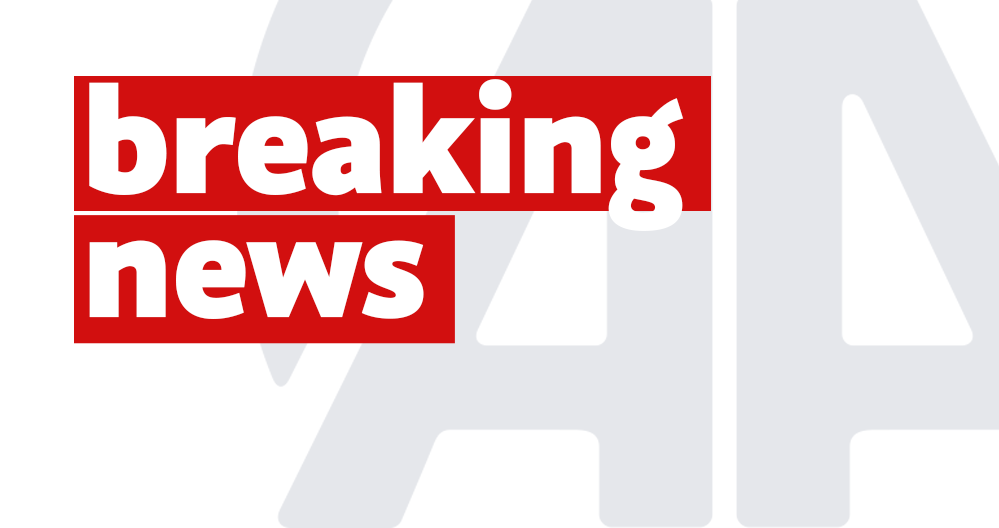
 RT
RT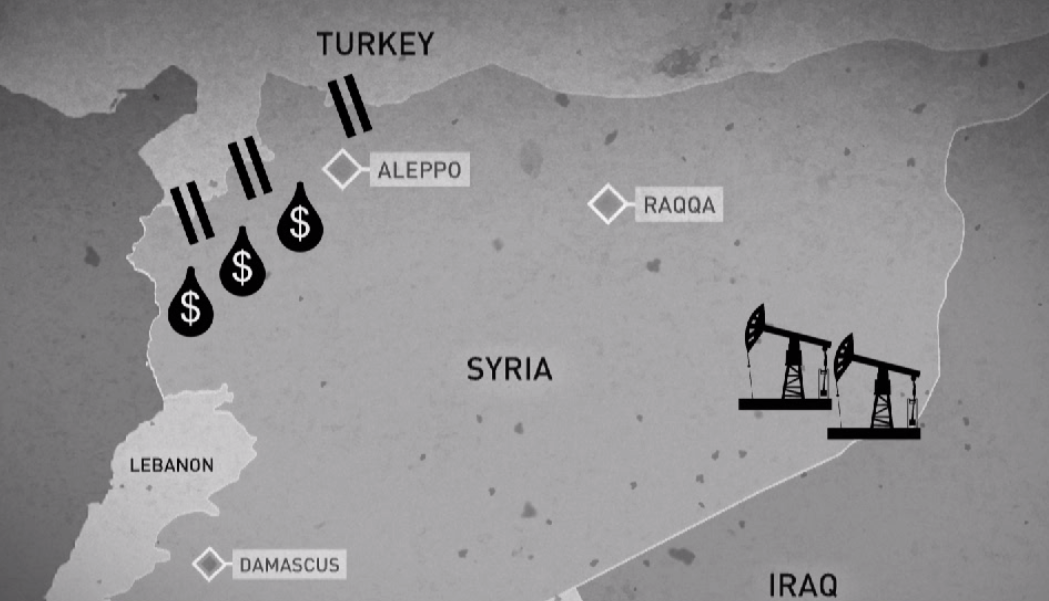
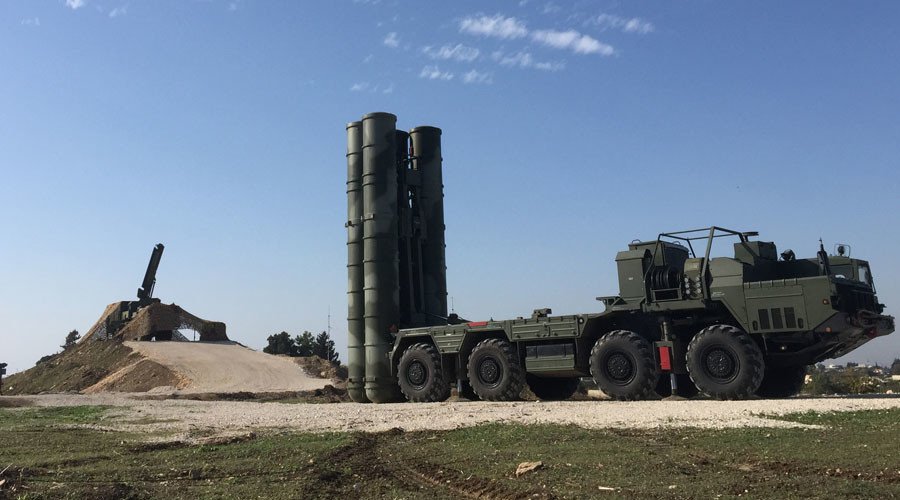
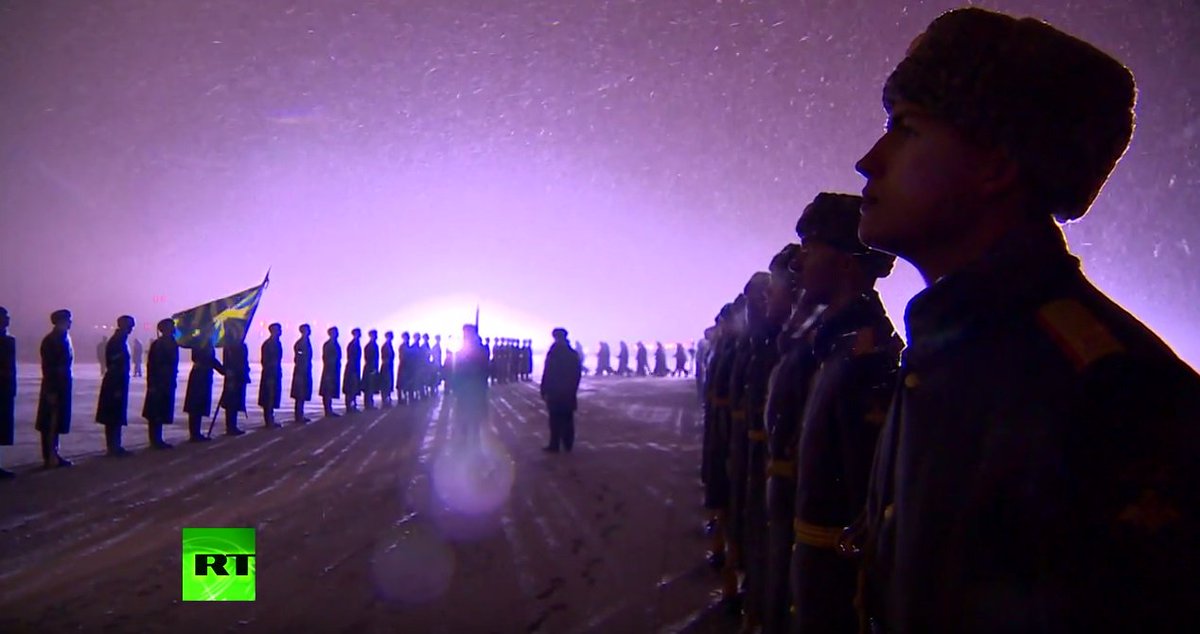
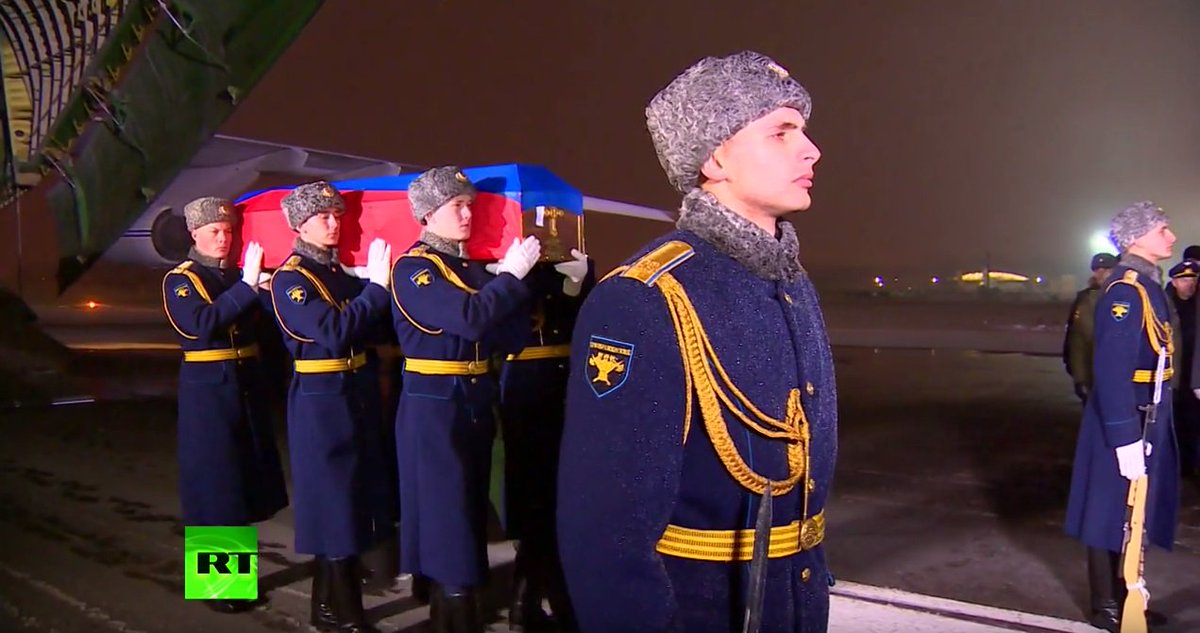
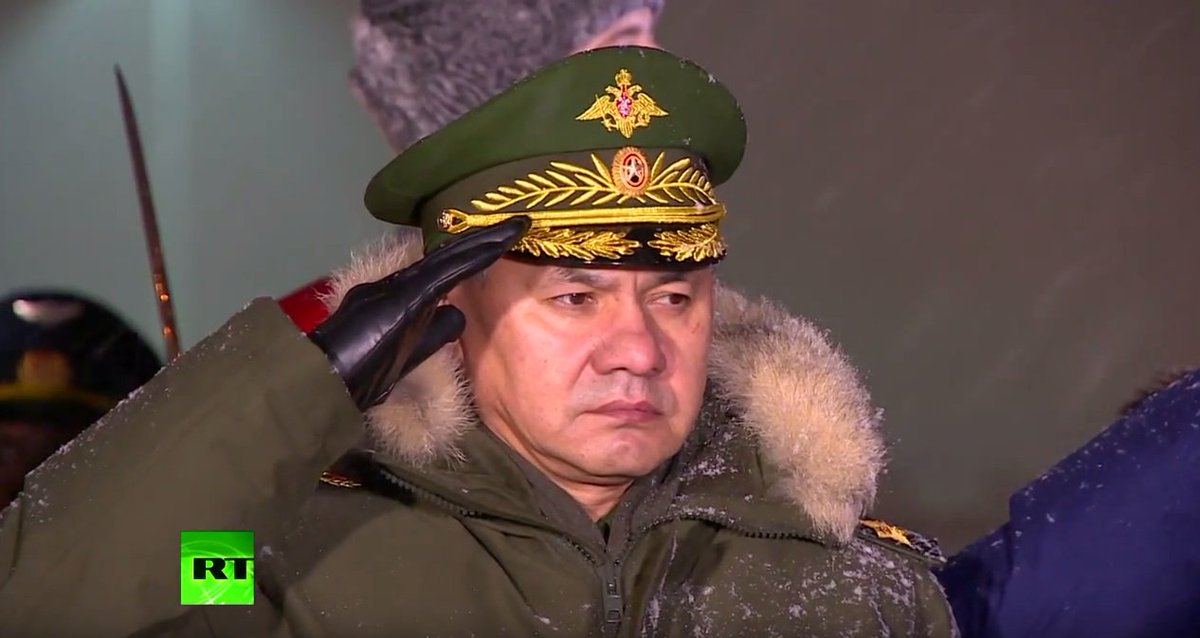
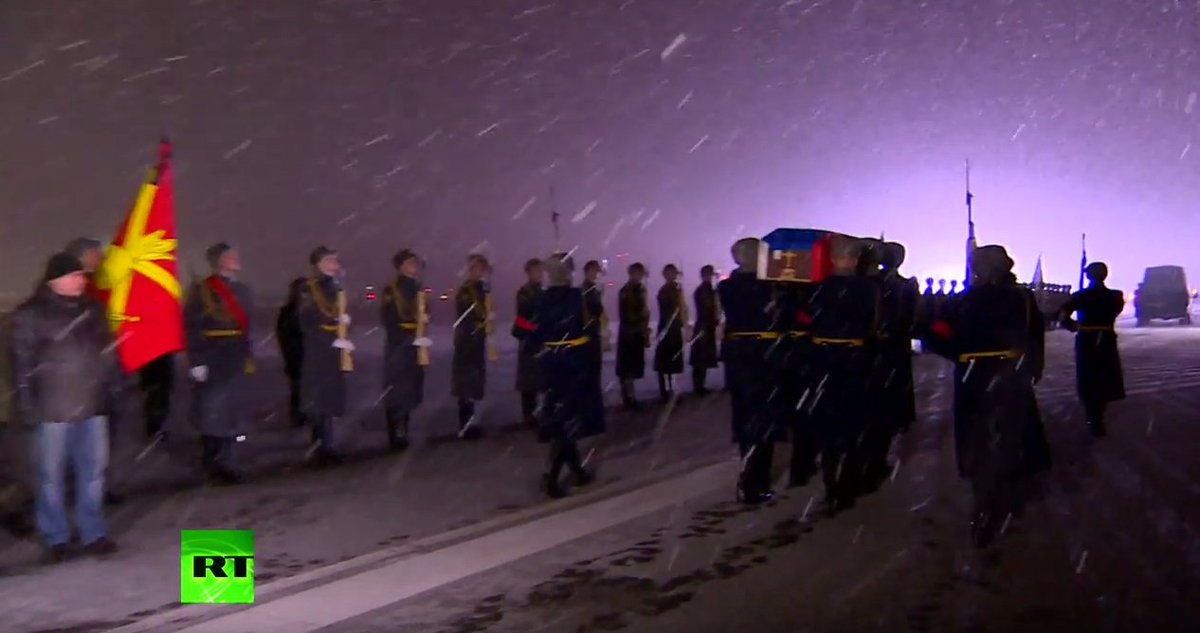
No comments:
Post a Comment
Note: only a member of this blog may post a comment.